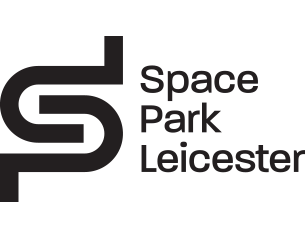Space explorers to reveal how the Moon can unlock the Solar System’s secrets

Experts from the first commercial company to soft land a spacecraft on the Moon will explain how it can help to unlock the mysteries of the Solar System at a special event organised by Space Park Leicester.
Only last month Intuitive Machines was named one of Time Magazine’s 100 most influential companies of 2024.
Now it has been revealed its Co-Founder and Chief Technology Officer Tim P Crain and Chief Scientist Ben Bussey will visit the University of Leicester’s £100 million science and innovation park to give a free talk on Monday, June 24, called Unlocking the Moon: Unlocking the Solar System.
Ben, who was an exploration leader for NASA prior to joining Intuitive Machines in 2022, said: “The Moon is a ‘multi-tool’ when it comes to unlocking the mysteries of the Solar System.
“Firstly, it is a ‘mini planet’ in the essence that it’s experienced the same geologic processes that have shaped the terrestrial planets.
“Due to its lack of atmosphere the Moon has preserved the effect of these processes, making it the ideal location to study them.
“Secondly, the Moon is the perfect platform from which to learn how to efficiently conduct human or robotic exploration.
“It represents a technically challenging – but doable – environment from which to learn how to further explore with humans into the Solar System.”
Intuitive Machines’ Odysseus spacecraft successfully landed on the Moon in February and sent back data for more than six days.
The company’s second mission, IM-2, is scheduled to fly later this year, and its IM-3 mission is set to take place in 2025.
Tim, who is also a member of the American Institute of Aeronautics and Astronautics and the American Astronautical Society where he is an annual national chair, said: “This regular access to the lunar surface has the potential to fundamentally change how we explore the Moon.”
Ben is a planetary scientist who has worked for top universities, the Lunar and Planetary Institute in Houston, the European Space Agency and NASA.
During his time at John Hopkins University Applied Physics Laboratory he was Principal Investigator of NASA VORTICES SSERVI and NASA Lunar Science Institute research teams that considered the exploration and scientific potential of the lunar poles.
He was the Principal Investigator of the Mini-RF radar instrument on NASA’s Lunar Reconnaissance Orbiter, and Deputy Principal Investigator of the Mini-RF radar instrument on India’s Chandrayaan-1 mission. Ben has also taken part in expeditions to recover meteorites from the Antarctic glaciers.
Tim’s career began at the NASA Johnson Space Center in Houston where he played a pivotal role as a lead engineer in the Engineering Directorate’s Aeroscience and Flight Mechanics Division, particularly in the navigation design for the Mars Science lander.
He is a multiple award-winner who also served as the Orbit Guidance, Navigation, and Control System Manager for the Orion spacecraft and was Flight Dynamics lead for NASA’s Project Morpheus.
Dr Hannah Sargeant, Research Fellow at Space Park Leicester, said: “Intuitive Machines won the challenging race for the first commercial landing on the lunar surface, demonstrating the skill and expertise present within the organisation.
“We’re excited to hear about the mission and how it will open up more opportunities for exploration of the Solar System.”
The talk, which is part of the Space Park Conversations series of events, will take place from 2pm to 3pm on Monday, June 24.
To book a place, visit https://www.eventbrite.co.uk/e/space-park-conversations-unlocking-the-moon-unlocking-the-solar-system-tickets-919497450627

- Find out more about Intuitive Machines
- Find out more about the University of Leicester


